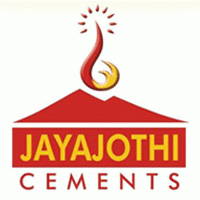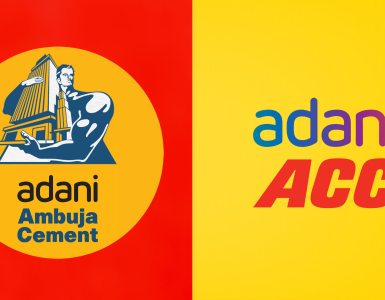My Home Industries Limited (MHIL):
MHIL is a joint venture between My Home Group and CRH Plc. CRH Plc, which has a presence in 33 countries across 3,500 locations. The products of MHIL with nomenclature MAHA CEMENT and MAHA SHAKTHI are the finest blend of Indian Values and International Standards and World Class Technology.
MHIL and CRH as one entity are fast emerging as a leading force in the Indian cement industry. In recognition of its quality drive, MHIL has been awarded the ISO 9001-2008 certification. With three manufacturing units located at Mellacheruvu in Nalgonda district of Andhra Pradesh, MHIL produces 3.20 million tons of cement per annum. These units are set up with state-of-the-art technology.
In addition to meet the increasing demand for cement both in domestic and international markets, MHIL has set up a cement grinding unit at Mulkapalli in Visakhapatnam district of Andhra Pradesh with a capacity of 1.50 million tons of cement per annum.
MHIL and CRH as one entity, is fast emerging as a leading force in the Indian cement industry
Sree Jayajothi Cements Limited:
It was incorporated by Jayajothi Group with the objective to develop, construct and operate cement manufacturing facility. Pursuant to the above objective, it established a Greenfield integrated cement manufacturing facility at ‘Yanakandala’ village, near Banaganapalli in Kurnool District of Andhra Pradesh, India with a combined clinkerisation capacity of 2 Million Tons per Annum (MTPA) and cement grinding capacity of 3.2 MTPA (“Cement Plant”). In 2012, with the company’s debt and unsettled dues, creditors (i.e. Shriram Group) converted their debt into equity and took over the control. Now the promoter (Shriram Group), which boasts revenues close to Rs. 14,000 crore, has presence other than this in consumer finance, commercial vehicle lending, insurance, retail stock broking and real estate.
The Total deal value for 100% is Rs. 1400 Cr., how it will be shared between Shriram Group and Jayajothi Group is not disclosed.
Financing:
MHIL will finance the deal from the existing debt capacity and by equity from CRH plc. and My Home Group. The partners will bring in over Rs 700 crore of additional equity to fund the deal, with the balance as debt.
Benefits to Shriram ELC Limited (Transferor):
- The transaction proceeds will be used towards debt reduction which will improve its financials.
- Cement business is not its core business as it came to them by default and not by choice. Cement is a long-term business and given the current political scenario in Andhra Pradesh and other market-related issues short term looks challenging. The company was also planning to raise private equity, “but at the current environment that is also difficult.”
- The engineering-procurement-construction company had acquired the cement plant in lieu of its EPC contract dues. Once Shriram EPC completely exits Sree Jayajothi, it will concentrate on the EPC business.
- Sree Jayajothi had been cash negative the whole of last year.
Benefits to My Home Industries Limited (Transferee):
- It will rapidly expand capacity to 8.4 million tonnes annually following its Rs 1,400 crore acquisition of Sree Jayajothi Cements
- Expand the market for its ‘Maha Shakthi’ brand of cement in the South and East through the acquisition.
- With the addition of SJCL, MHIL will become the market leader in the Andhra Pradesh region and will benefit from complementary market coverage.
- Logistics accounts for more than one-third of cement costs. The acquisition in southern Andhra Pradesh gives MHI reach into Tamil Nadu, Kerala, and Karnataka.
- Sree Jayajothi cement plant was operating at less than 40 percent of its capacity as constraints of finance and power availability. MHIL can scale up the production as it has a surplus on both fronts. The Hyderabad-based company has over 75 MW of captive power within the group, which is adequate to meet the needs of the acquired production facility. With “a bit of debottlenecking”, the capacity utilisation can go up 75-80 percent.
- Also, the capital plans are in place to set up grinding units and blending units to reach the targeted markets.
Who is the winner in valuation terms?
It is paying around Rs 4,375 a tonne for the deal, which is higher than what Dalmia Cement paid to buy one small cement firm (Calcom Cement) in the eastern region of the country last year. This could be for building a stronger position in southern India where the bulk of its current operational presence is located as cement is a largely localised & regional business, and consumption is mostly driven by production in the region and a premium to rule out other competitors in the deal as in January this year, it was reported that CRH, rival Holcim, as well as private equity giants Blackstone and KKR were also in preliminary talks about buying the Indian cement business. Dalmia group also paid Rs. 7,233/- a tonne for the acquisition of Adhunik cement in Meghalaya which is much higher than the current deal.
Conclusion:
The deal might be at a premium but considering the addition to the capacity and expansion of presence in South India will help them to compete with Madras Cements Limited, Dalmia Cements, in the southern states of Tamil Nadu and Andhra Pradesh (with the installed capacity of more than MHIL) after the acquisition. Whereas the Shriram group was in the business not by choice but by default and in the downturn, it was challenging for them to focus on the business which was not core. So considering the above it was the right time for the MHIL to acquire where the small companies are struggling due to the downturn in the market. In addition to this Madras Cements is also in the initial stage of discussion with the CCI (Cement Corporation of India) to acquire the plants in Karnataka, Chhattisgarh, and Madhya Pradesh (i.e. non-operating assets of CCI). So this industry is going to see a lot of deal to happen in the not too distant future.




